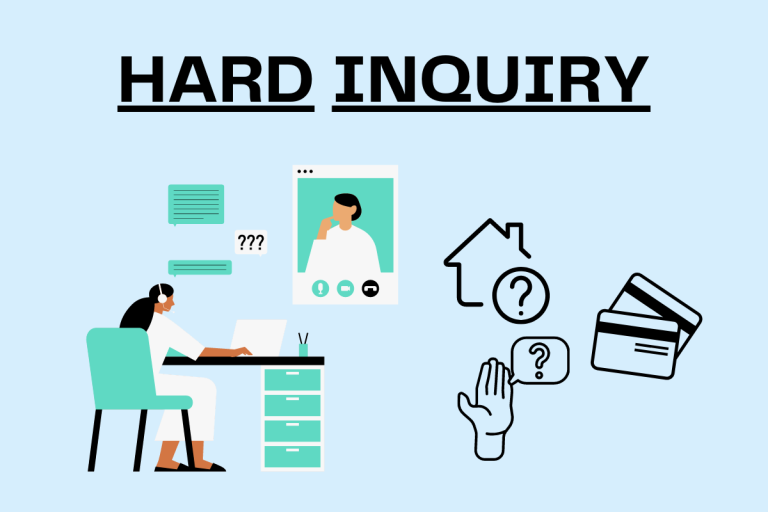
Hard inquiries can temporarily lower your credit score and affect your ability to qualify for loans or credit cards. While they only stay on your report for two years, removing unauthorized or unnecessary inquiries can improve your score. This guide explains how hard inquiries impact your credit, when you can remove them, and steps to get them off your report.
What Are Hard Inquiries?
A hard inquiry (or hard pull) occurs when a lender checks your credit report to decide whether to approve your application for credit. This typically happens when you:
- Apply for a credit card or loan
- Seek a mortgage or car loan
- Request a credit line increase
While a few hard inquiries won’t drastically hurt your credit, too many inquiries within a short period can lower your score and signal risk to lenders.
Pro Tip: Multiple inquiries for the same type of loan (like a mortgage) within a 14-45 day window are often treated as one inquiry by credit scoring models.
How Hard Inquiries Affect Your Credit
- Impact on Credit Score: Each hard inquiry can drop your score by 5-10 points. However, their effect diminishes after a few months.
- Duration: Hard inquiries remain on your report for 2 years, but their impact on your score typically fades after the first 12 months.
- Too Many Inquiries: Multiple inquiries in a short period may make you appear credit-hungry, which lenders see as a red flag.
When Can You Remove Hard Inquiries?
You can only remove inaccurate, unauthorized, or fraudulent inquiries from your report. If you willingly applied for credit, those inquiries must remain, even if your application was denied.
Here are examples of removable inquiries:
- You didn’t authorize the lender to run your credit.
- The lender pulled your report multiple times by mistake.
- Fraudulent inquiries resulting from identity theft.
Steps to Remove Hard Inquiries from Your Credit Report
1. Check Your Credit Reports
Start by reviewing your credit reports from all three major bureaus—Experian, Equifax, and TransUnion. You can get free copies from AnnualCreditReport.com.
Look for any hard inquiries you don’t recognize or remember authorizing.
2. Verify Unauthorized Inquiries
If you find inquiries you don’t recognize, contact the creditor or lender listed next to the inquiry. Ask for details about why they pulled your credit and confirm if you gave permission.
3. Dispute the Unauthorized Inquiries
If the inquiry is indeed unauthorized, follow these steps to dispute it:
- Submit a Dispute with the Credit Bureaus:
File a dispute online, by mail, or by phone with Experian, Equifax, and TransUnion. Be clear about which inquiry you’re disputing and why it’s inaccurate. - Provide Supporting Documentation:
Include any relevant documentation, such as your correspondence with the lender or proof of identity theft. - Monitor Your Dispute Status:
Credit bureaus have 30 days to investigate and respond to your dispute. If the inquiry is found to be unauthorized, it will be removed from your report.
4. File a Fraud Alert or Credit Freeze (if Necessary)
If you discover that fraudulent inquiries resulted from identity theft, take additional steps to protect your credit:
- File a fraud alert with one of the credit bureaus.
- Freeze your credit to prevent new accounts from being opened in your name.
- Report identity theft to the Federal Trade Commission (FTC) at IdentityTheft.gov.
5. Follow Up with the Lender
If the credit bureau’s investigation doesn’t resolve the dispute, contact the creditor directly. Provide evidence that the inquiry was unauthorized and request them to correct their reporting.
How Long Does It Take to Remove Inquiries?
Once a credit bureau accepts your dispute, it typically takes 30-45 days for the inquiry to be removed from your credit report. If the inquiry remains, you can escalate the issue by contacting the Consumer Financial Protection Bureau (CFPB) or consulting a credit repair professional.
Can Authorized Hard Inquiries Be Removed?
If you authorized the inquiry, it can’t be removed unless there’s an error. However, don’t worry too much—these inquiries have a limited impact and disappear after two years. In the meantime, focus on other factors like on-time payments and low credit utilization to boost your score.
Final Thoughts
While hard inquiries are a normal part of the credit process, too many can hurt your score, especially if you’re planning to apply for a loan or mortgage soon. By regularly reviewing your credit reports and disputing unauthorized inquiries, you can maintain a healthier credit profile.
If you’re overwhelmed or need help managing your credit, JDP Credit Solutions offers tools and strategies to assist you with credit repair. Let us guide you on your path to financial freedom!
Need more credit tips? Follow us on social media for expert advice on improving and maintaining your credit!
